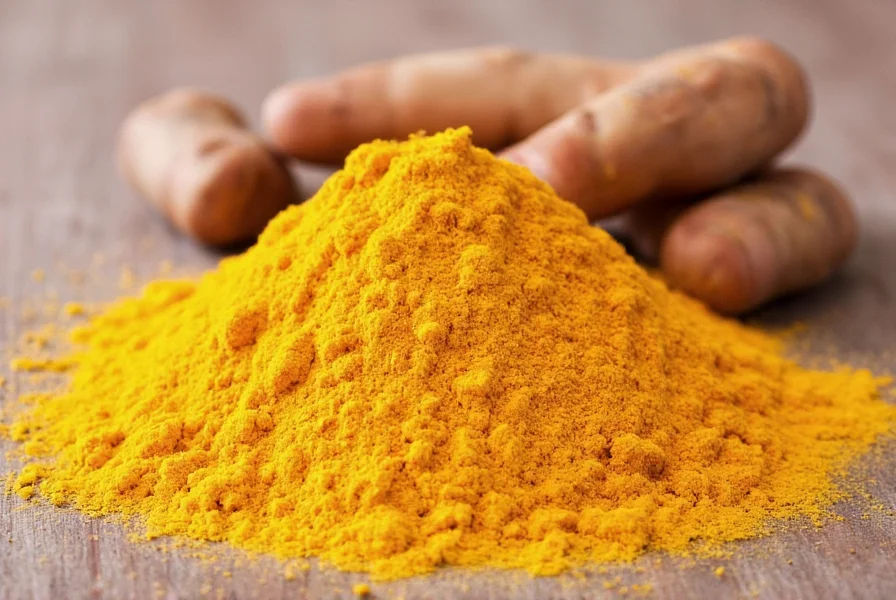For centuries, turmeric has been celebrated in traditional medicine systems for its potential health benefits. This vibrant yellow spice, derived from the Curcuma longa plant, contains curcumin as its primary active compound. As turmeric supplements have gained popularity in Western wellness culture, concerns have emerged about potential liver effects. Let's examine what current research actually tells us about turmeric and liver health.
Understanding Turmeric's Relationship with Liver Function
Turmeric isn't just a kitchen staple—it's a subject of extensive scientific research. The liver, our body's primary detoxification organ, processes everything we consume, including dietary supplements. When evaluating is turmeric supplement bad for liver concerns, researchers distinguish between culinary use and concentrated supplement forms.
Multiple studies published in reputable journals like the Journal of Medicinal Food and Phytotherapy Research suggest that curcumin may actually support liver health through its anti-inflammatory and antioxidant properties. These mechanisms potentially help protect liver cells from damage caused by toxins and oxidative stress.
Scientific Evidence: Benefits vs. Concerns
Research indicates turmeric may benefit liver health in several ways:
| Potential Benefit | Scientific Support | Research Context |
|---|---|---|
| Antioxidant protection | Strong evidence from animal and cell studies | May reduce oxidative stress in liver tissue |
| Anti-inflammatory effects | Multiple human clinical trials | May help with non-alcoholic fatty liver disease |
| Detoxification support | Preliminary evidence | May enhance liver's natural detox pathways |
However, the question can turmeric cause liver damage deserves careful consideration. A small number of case reports have documented instances of liver problems potentially linked to high-dose turmeric supplements. The European Medicines Agency reviewed 17 cases of suspected liver injury associated with curcumin products between 2008-2019. Importantly, these cases represent an extremely small fraction of total users, and establishing direct causation remains challenging due to potential confounding factors.

Who Should Exercise Caution with Turmeric?
Certain individuals may need to be more cautious about turmeric consumption:
- People with pre-existing liver conditions should consult healthcare providers before starting high-dose supplements
- Those taking medications metabolized by the liver may experience interactions
- Individuals with gallbladder issues should monitor their response
- People with known curcumin sensitivity
The distinction between dietary turmeric and supplements is crucial when addressing curcumin liver toxicity concerns. Culinary use—adding turmeric to food—typically involves much lower concentrations than supplements. Most traditional diets containing turmeric show no adverse liver effects at these levels.
Safe Consumption Guidelines
Based on current evidence, here are practical recommendations:
- Dietary turmeric: Using turmeric as a spice in cooking (typically 1-3 grams daily) appears safe for most people
- Supplement dosage: Most studies use 500-2,000 mg of curcumin daily; higher doses lack sufficient safety data
- Quality matters: Choose supplements with third-party testing for purity and accurate labeling
- Listen to your body: Discontinue use and consult a healthcare provider if experiencing symptoms like jaundice, abdominal pain, or unusual fatigue
When considering safe dosage of turmeric for liver health, remember that more isn't necessarily better. The World Health Organization suggests an acceptable daily intake of 0-3 mg per kilogram of body weight for curcumin, though this refers to the compound itself rather than whole turmeric.

Turmeric Supplements vs. Dietary Turmeric
Understanding the difference between these forms is essential for evaluating is turmeric bad for your liver concerns:
- Dietary turmeric: Contains approximately 2-8% curcumin; consumed with other foods that may enhance absorption
- Standardized supplements: Often contain 95% curcumin extracts, representing a much higher concentration
- Enhanced formulations: Some supplements include piperine (from black pepper) to increase absorption, potentially intensifying effects
Most reported cases of potential liver issues involve high-dose supplements rather than culinary use. This distinction is critical when addressing concerns about turmeric supplement side effects liver health.
When to Consult a Healthcare Provider
Certain situations warrant professional medical advice before using turmeric supplements:
- If you have diagnosed liver disease or elevated liver enzymes
- When taking medications that affect liver function
- Before surgery (turmeric may affect blood clotting)
- If considering turmeric for therapeutic purposes rather than general wellness
Healthcare providers can help determine whether turmeric supplements might interact with your specific health conditions or medications. They can also monitor liver function through blood tests if concerns arise.
Conclusion: Balancing Benefits and Potential Risks
The question is turmeric bad for your liver doesn't have a simple yes-or-no answer. Current evidence suggests that moderate dietary use of turmeric poses minimal risk to liver health and may offer protective benefits. High-dose supplements, while generally safe for most people, have been rarely associated with liver issues in susceptible individuals.
As with any supplement, informed decision-making matters. Understanding your personal health status, using quality products at appropriate doses, and monitoring your body's response can help you safely incorporate turmeric into your wellness routine. For those with specific liver concerns, consulting a healthcare provider remains the wisest course of action.
Frequently Asked Questions
Can turmeric supplements cause liver damage in healthy individuals?
Current evidence suggests turmeric supplements rarely cause liver issues in healthy individuals when taken at recommended doses. Most studies show turmeric has protective effects on liver tissue. The few reported cases of liver problems typically involve very high doses, pre-existing liver conditions, or other complicating factors. Dietary use of turmeric as a spice shows no evidence of liver harm.
How much turmeric is safe for liver health?
For culinary use, adding 1-3 grams (about ½ to 1½ teaspoons) of turmeric to food daily appears safe for liver health. For supplements, most research uses 500-2,000 mg of curcumin daily. The World Health Organization suggests an acceptable daily intake of 0-3 mg of curcumin per kilogram of body weight. Always start with lower doses and monitor your body's response, especially if you have liver concerns.
Who should avoid turmeric supplements for liver reasons?
Individuals with diagnosed liver disease, those with elevated liver enzymes, or people taking medications that affect liver function should consult their healthcare provider before using turmeric supplements. People with gallstones or bile duct obstruction should also exercise caution, as turmeric may increase bile production. If you experience symptoms like jaundice, abdominal pain, or unusual fatigue after starting turmeric supplements, discontinue use and seek medical advice.










 浙公网安备
33010002000092号
浙公网安备
33010002000092号 浙B2-20120091-4
浙B2-20120091-4